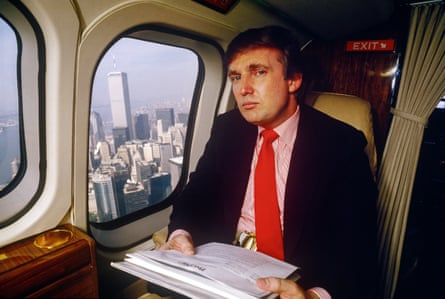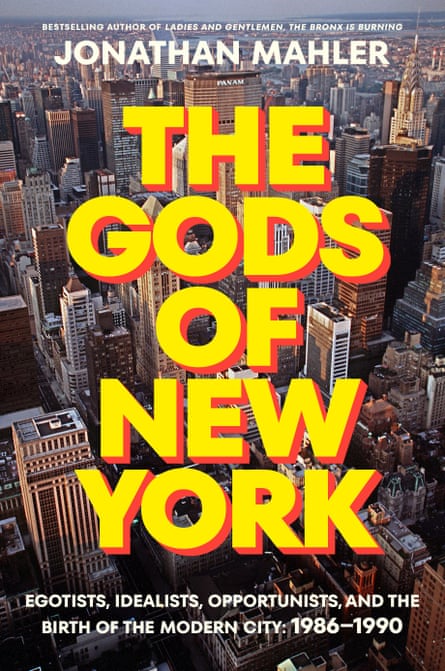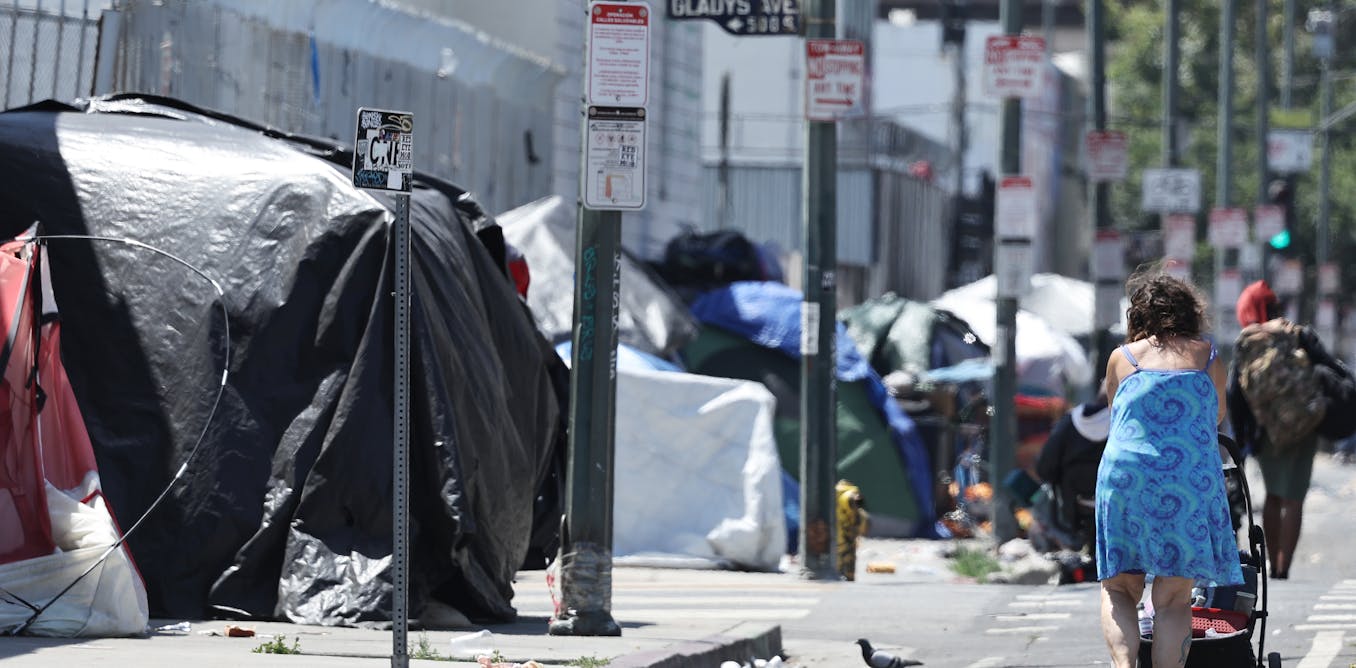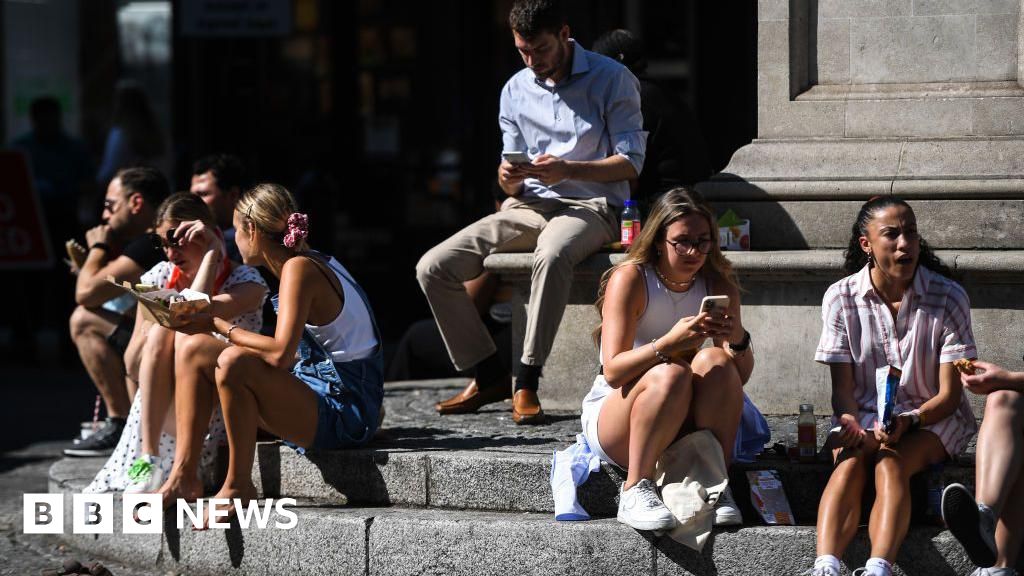Jonathan Mahler didn’t plan to publish his new book about New York City from 1986 to 1990, tumultuous years culminating in a historic mayoral election, amid a similarly dramatic campaign for city hall. But he’s not unhappy to do so.
The Gods of New York tells how the Democrat Ed Koch sought a fourth term as mayor but by election year, 1989, was widely seen as an “incumbent plagued by scandal, just like Eric Adams now”, Mahler said.
“We had Rudy Giuliani, the tough guy from the outer boroughs – in Giuliani’s case Brooklyn, now in Andrew Cuomo’s case, Queens. And then we had the candidate of color who was saying: ‘I’m going to take the city back for the people who are getting left out.’ It was David Dinkins then and it’s Zohran Mamdani now.”
Wary of generalization, as befits a veteran New York Times reporter, Mahler nonetheless said that as the city “went through a big transformation” from 1986-90, so “it’s going through another now.”
The Gods of New York is a sequel of sorts to Ladies and Gentlemen, the Bronx is Burning, Mahler’s book about the city in crisis in the late 70s. Turning to the late 80s, Mahler presents a riot of stories from a period beset by racial tensions, the crack epidemic, soaring crime, sensational cases and an economic boom overwhelmingly boosting the rich. Keeping ordinary New Yorkers in mind, Mahler nonetheless presents extraordinary characters.
“I will confess I went back and forth on the title, which was suggested by a friend,” Mahler said. “I thought: ‘That’s the perfect title.’ And then a handful of people were like: ‘You can’t possibly call it The Gods of New York. Are you saying Donald Trump is a god? And Rudy?”
Forty years ago, no one foresaw the Trump of today: occupying the White House, dividing America, Giuliani a shameless sidekick.
“I was like: ‘Well, not gods in that sense. This is much more like the Greek gods. They were kind of on their own tabloid Mount Olympus. Really, what I meant was that [Trump, Giuliani and others] were looming over the city like gods, not necessarily benevolent. Remember, the Greek gods were … wrathful, vengeful and petty. That was definitely what I was going for. Less literal, more figurative. So I stuck with it.”

Readers could do worse than make The Gods of New York a double bill with Paper of Wreckage, an acclaimed oral history of Rupert Murdoch’s New York Post published last year, a chronicle of the gutter press and the stars.
“All the characters were operating from the same playbook, in a way,” Mahler said of a cast that contains others still prominent, among them Spike Lee, then shooting his remarkable first films in Brooklyn, and the Rev Al Sharpton, a Black leader through the Howard Beach racist attack, the Tawana Brawley rape hoax and other scandals once boiling, now near-forgotten.
“They were all trying to get the city’s attention and use that attention. We now use the term ‘attention economy’ all the time. This was really kind of the beginning of the attention economy and all these characters kind of intuitively understood that.
The gay rights campaigner Larry Kramer “was organizing these incredibly in-your-face protests against the city and the country’s handling of Aids [that were] no different, in a way, from what Trump was doing and is still doing, which is trying to get people’s attention and keep it, trying to start a story and keep it going.
“I’m not sure that I would have seen that parallel if I hadn’t seen Trump do it in 2016 when … I was working on reporting the [presidential] campaign. It was kind of crazy to watch him get elected, particularly as a New Yorker.”
Working on The Gods of New York, Mahler saw Trump “using the same power to its ultimate effect: the insistence that he is never wrong, that you just keep moving forward. You act bulletproof, then you are bulletproof. I don’t know that I would have understood what he was doing in the 80s and what all these guys were doing if I hadn’t seen it play out on the biggest stage in recent years.”
Kramer died in 2020, after giving a last interview to Mahler. In 2024, Trump surged back to power. Amid the fire and fury of the second term, reading about Trump in the 80s can feel a little jarring. As Mahler shows, even the Times was once drawn in.

“There’s a great note in the Abe Rosenthal papers,” Mahler said, referring to the long-serving editor. “A staff member wrote him a note saying: ‘No wonder Donald Trump has such a huge ego: I don’t think anyone’s ever got on the cover of so many New York Times sections in such a short period of time.’
“I guess in some ways that’s a failure on the part of the Times to see who Donald Trump was, but I think also the context is important. In that moment, New York was recovering from some really dark days. The city was in a real death spiral for years. And then along comes this guy ready to invest in New York in audacious ways, really doubling down on the city.
“And so you can sort of understand why, if you’re an institution like the New York Times that is very connected to New York, much more so then than today … they might feel like: ‘Well, this guy believes in New York, he’s betting on New York,’ and you can see how that might earn him some goodwill.”
Mahler also documents Trump’s disastrous fixation with Atlantic City, which he utterly failed to turn into a gambling hub, to his considerable cost; his callous treatment of women; his notorious call for the Central Park Five, Black youths ultimately shown to have been falsely convicted of rape, to be sentenced to death.
Crime stories run through Mahler’s book. The so-called Preppy Murder also centers on Central Park, where Jennifer Levin’s body was discovered. Prosecutor Linda Fairstein emerges as a thwarted hero, aghast at suspect Robert Chambers’ protection by the Catholic church and escape from the harshest sentence. And yet Fairstein went on to help subject the Central Park Five to a historic miscarriage of justice.
“She was so demonized after the Central Park Five,” Mahler said. “I think it was interesting to see these two cases sort of as a pair, and the way in which Fairstein was so bitter about how the Chambers case played out … and then not even a couple years later, she’s confronted with the chance to sort of make amends. Not that this was a conscious decision, but you could see how maybe she was more zealous than she should have been [regarding the Central Park Five], because she felt … unsatisfied with the resolution of the Chambers case.”
A man who held the stage longer than most, Koch, is perhaps Mahler’s central character. At the start, the mayor is riding high. By the end, he’s been brought low.
Mahler said: “His third term was pretty clearly a disaster. But I think of him as a really sympathetic character … someone who was so flawed but also so committed to New York … he really cared about the city. I think that’s a good lens through which to see his feud with Trump [over Trump’s real-estate plays], because Trump was in it for Trump and Koch knew that was not in the best interest of New York.”
Koch will also be known to history for being gay but not coming out, his mayoralty covering the worst years of the Aids epidemic, campaigners such as Kramer raging.

Mahler tells that story, counting himself “very fortunate that the Times did a big piece a couple years ago about Koch’s sexuality, and kind of outed him. I feel like now … we all know this is how it was.”
Was Koch a good mayor?
“I think you would have to say yes and no,” Mahler said. “Though I’m not sure he had any other choice, as he had to do something to save the city, he set in motion this transformation, this shift toward private business that I guess we’re now seeing the sort of reaction against, with Zohran.”
We’re back to the current campaign. Thirty-six years ago, in the election that ends Mahler’s book, Dinkins beat Koch in the Democratic primary then seized the big prize. Mahler rates the city’s first Black mayor as a good one “dealt a terrible hand”, the same fate that befell Benjamin Ward, the city’s first Black police commissioner. Dinkins served one term, losing to Giuliani in 1993. The city’s transformation continued. It always will, which helps make The Gods of New York such an enthralling read. The city Mahler shows is gone, but its stories remain.
-
The Gods of New York is out now

 German (DE)
German (DE)  English (US)
English (US)  Spanish (ES)
Spanish (ES)  French (FR)
French (FR)  Hindi (IN)
Hindi (IN)  Italian (IT)
Italian (IT)  Russian (RU)
Russian (RU)  3 hours ago
3 hours ago























Comments